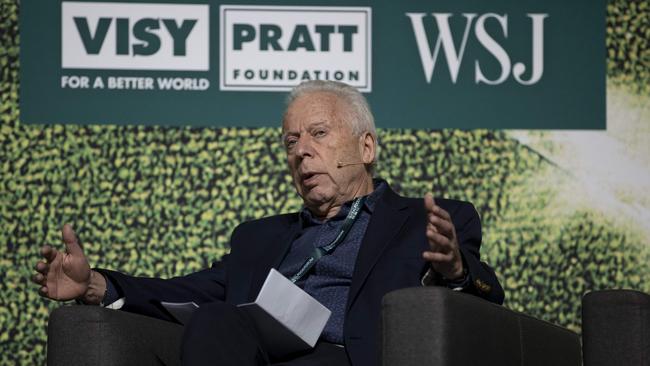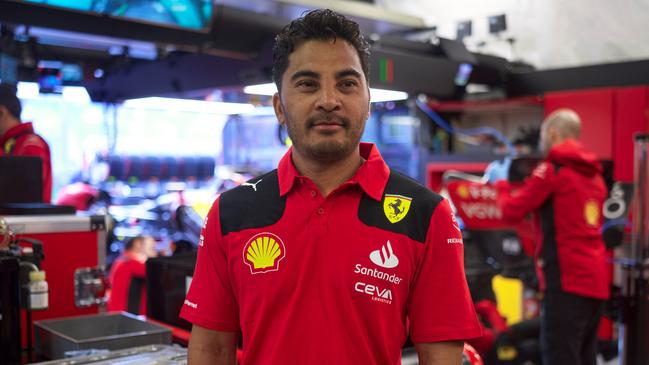The billionaires whose personal profits have fallen
Higher interest rates, more costs and increasing inflation have hit the financial results of some of Australia’s biggest privately-owned companies.
Business
Don't miss out on the headlines from Business. Followed categories will be added to My News.
Profits are falling for some of Australia’s biggest privately owned companies as soaring costs, rising inflation and higher interest rates cut into earnings.
Mortgage lenders, retailers, stock pickers and property companies have all been hit by market forces, crimping the earnings of plenty of firms owned by members of The List – Australia’s Richest 250.
Take Firstmac, one of Australia’s biggest non-bank mortgage lenders that services almost 60,000 customers across the country and manages a loan portfolio of about $16bn.
Owned by billionaire Kim Cannon, Firstmac’s 2023 financial profit result was hit by higher interest rates, according to documents lodged with the corporate regulator this week.
Firstmac’s net profit fell 33 per cent to $50.3m this year, compared with $76.9m in 2022, which the company said was due to higher interest rates that pushed up market funding costs and repriced Firstmac’s short-term warehouse funding facilities.
“This year has proven to be a difficult operating environment, primarily due to quantitative tightening by the Reserve Bank of Australia (RBA) and Central Banks around the world more broadly,” a note in the Firstmac financial accounts said.
“The small but constant incremental change in the cash rate has been particularly damaging ... resulting in a squeeze on the group’s net interest income.”
Mr Cannon recently told The Australian that conditions have improved since the end of the financial year on June 30, and arrears on Firstmac loans are at historic lows.
The company has this year increased its car loans book, which has grown to $727m from $506m in 2022.
“It is anticipated that this strategically important business line will evolve to include commercial products and white-label distribution arrangements,” Firstmac said.
Meanwhile, billionaire Jack Cowin’s Competitive Foods, which houses the huge Hungry Jack’s fast-food chain, hit the $2bn sales mark for the first time.
But the profitability of Competitive Foods fell, dropping from a profit of $100.19m in 2022 to $73.86m in 2023, driven partly by discontinued operations from the 2023 accounts and a sharp rise in raw material costs and staff costs.

It was a similar story at Jack Gance and Mario Verrocchi’s Chemist Warehouse, according to the accounts lodged by its main parent company, CW Group Holdings.
It made a net profit of $302m for the year to June 30, down about 22 per cent from the $385m result a year earlier. Revenue reached $3.09bn, compared with $2.99bn in 2022.
A $250m increase in the cost of sales on the CW Group Holdings balance sheet was the main reason for the difference in net profit.
Incentives for its customers to keep playing its social casino games cut the earnings of Laurence Escalante’s Virtual Gaming Worlds.
Net profit for the year to June 30 fell about 17 per cent to $377.6m from $454m in the previous corresponding period, despite revenue surging 40 per cent to a record $4.84bn.
Meanwhile, the huge Kennard’s Self Storage business also had a fall in its net profit – due to a smaller rise in the revaluation of its substantial property portfolio than in the previous year.
Kennard’s Self Storage’s statutory net profit for 2023 was $334m, including a $315m increase in the fair value of its investment properties for the year.
That compared with a $414m net profit in 2022, which included a $444m upwards revaluation of its property assets.

The company’s revenue rose from $193m last year to $219m though, primarily comprising of income from its storage facilities.
Fund manager Peter Cooper’s firm also experienced a profit fall this year – its surplus dropping from about $32m in 2022 to almost $12m.
Most of the reason for the fall was due to a big drop in revenue, as a result of a lack of performance fees.
Revenue in 2022 for Cooper Investors was $100m, including $38m in performance fees paid for outperforming the benchmarks for the various Cooper funds. But with only $2m in performance fees derived in 2023, total revenue fell to $55m.
Kennard’s Hire, owned by Andy Kennard and his family (the Kennard family previously split its storage and hire businesses), bucked the trend though, recording an almost $7m rise in net profit to $85m for 2023.
That came from an almost $100m increase in revenue to $629m though, offset by rising costs including employee benefit expenses – which increased $50m to $229m.
More Coverage
Originally published as The billionaires whose personal profits have fallen





